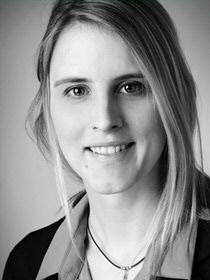A legal framework for decentral cross-border sustainable energy supply
The Smart Energy Region Emmen-Haren (SEREH) project is initiated by the Municipality of Emmen (in the Netherlands) and the city of Haren (in Germany), and aims to create the preconditions for the realization of a decentralized, cross-border and sustainable energy market. With a cross-border connection at distribution grid level, the demand and supply of sustainable electricity can be better matched at the regional level – a unique project in Europe. The kick meeting took place on September 18.
But how do the European, Dutch and German energy legislation relate to each other, and what would a new legal framework to achieve a cross-border local energy community in the Emmen-Haren region look like? Researchers at the UG Groningen Centre of Energy Law are attempting to answer these questions.

Researcher Lea Diestelmeier: ‘Within the SEREH project we analyse the legal situation on both sides of the border in Germany and the Netherlands and EU law, aiming to develop a legal framework for this specific situation which could become an example for other border regions Europe. In 2016 the European Commission published a legislative proposal reforming the electricity sector which also envisages local energy communities operating across borders. The project thus connects to recent legislative developments.’
In Europe, an energy supply in which the demand and supply of sustainable energy is coordinated across borders at the distribution level has never yet been realized. Research is therefore needed to determine not only the legal but also the financial and technical preconditions. Next to the University of Groningen this project thus includes Hochschule Osnabrück, University of Twente, project developer Agrowea, Dutch oil company NAM, grid operator Westnetz, wind turbine manufacturer Enercon and developer Raedthuys.
The SEREH project will receive a European subsidy of more than €1 million from the Interreg programme. This subsidy enables the project partners to further work on designing the first cross-border energy region in Europe. The first results will be published at the end of 2020.
| Last modified: | 13 March 2020 1.41 p.m. |
More news
-
05 March 2025
Women in Science
The UG celebrates International Women’s Day with a special photo series: Women in Science.
-
04 February 2025
'To entice is okay, to mislead is not'
In the supermarket, there is a carton of ‘blackcurrant juice’. At least, that is what it is called and what the picture on the packaging suggests. The list of ingredients, however, states that the contents are mainly made of apples and grapes. Is...
-
23 January 2025
Two UG researchers join The Young Academy
Prof. Björn Hoops and Dr Esther Metting are joining The Young Academy (De Jonge Akademie, DJA) of the Royal Netherlands Academy of Arts and Sciences (Koningklijke Nederlandse Akademie van Wetenschappen, KNAW). Every year, the DJA selects 10 talented...
